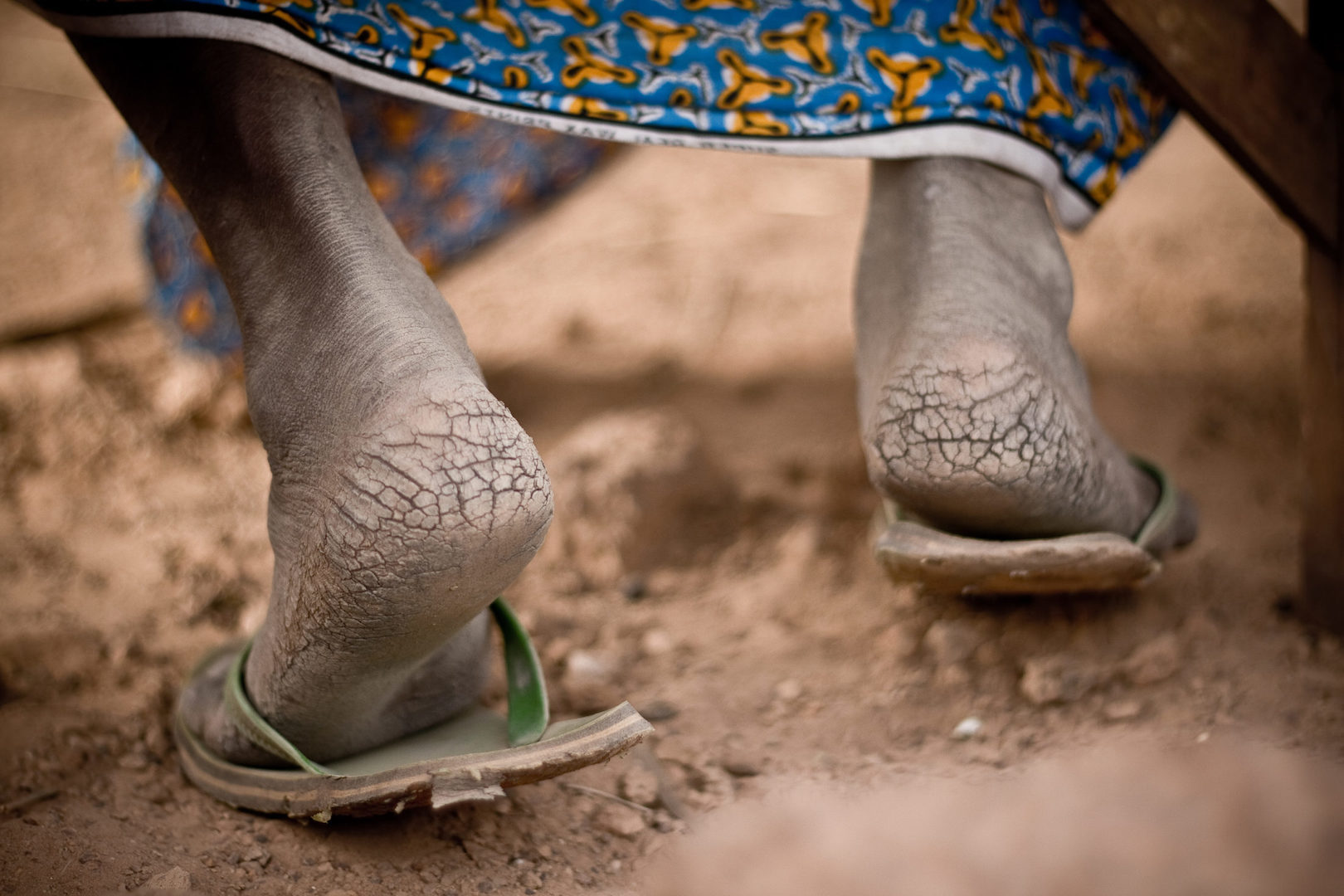
“We’ve started eating bark. You can’t eat it from every tree, but there are some types that are supposed to be nutritious and are edible if you boil it. And we eat the leaves and stems from the bean plants. This used to be animal food, but now our animals starve because we must feed ourselves.” — a Nigerian national
Walking through a once-prosperous and thriving area of northern Nigeria reveals a stark contrast to the pictures and the stories I know about this area. In just one year, food prices have increased 150 to 400 percent. Money that would normally go toward children’s education is now used for survival. The rains didn’t come, so the bean and corn harvests failed. Millet is next. The streets swirl with dust, and people hide their faces from its sting.
“In just one year, food prices have increased 150 to 400 percent.”
There should be a bustle of vehicles, horns blaring, animals braying, people shouting and laughing, but it’s quiet. Nigerians are an industrious people who love ceremony, bluster, and merriment. The air should be filled with the sounds of life. But the streets are still.
There’s no produce or goods to move. Inflation compounds scarcity so that once busy port towns and import centers sit empty. This oil-rich country is devastated by a downturn in global oil prices, so the fuel stations are closed and the trucks sit idle. People don’t have the energy to spare for festivities, and even batteries for radios grow scarce. The music of the streets is silenced.
This is a small picture of how famine disturbs the normal patterns of life, especially in severely affected areas. Famine not only entails food scarcity, but deals a death blow to economies, community life, and every angle of survival. Teachers aren’t paid, which means education services cannot continue. Goods are not delivered to shopkeeper’s shelves, so there is nothing to buy. Workers who do have services to offer face unemployment because no one has the funds to pay them. As this trickle-down effect continues, people are reduced to eating one meal every two days.
Uncertainty Feeds Despair
If teachers, shop owners, and others aren’t paid, why should they show up? When they don’t, “poor” becomes the staple: balls of millet paste, stewed cassava, and sauces of water and leaves.
Anger gives way to despair in this region. In other drought-stricken areas I’ve visited, the people are indignant. They’re sad and hurting, but they are also motivated by ire over what’s happening and are driven to survive. The people I’ve talked to in a small Nigerian village, however, don’t see a way out. Instead of fighting back, they just hold onto whatever they can and pray that some make it through.
“They just hold onto whatever they can and pray that some make it through.”
In just three of the worst-affected states, the UN estimates that over seventy-five thousand children could die of hunger and hunger-related illness this year. That’s over two hundred deaths per day. Let that sink in. And that is only counting three of the country’s fourteen northern states. At the end of 2016, it was estimated that three hundred people were dying every day across the region because of the famine. Children and the elderly are always the worst hit. As Nigerian fathers and mothers have watched their children and parents die, the anger has worn out of them, and despair is all that remains.
“We Feel Forgotten”
Compared to the media flurry around the Bring Back Our Girls campaign in 2014, the deepening famine crisis in this same region seems to get little attention, if any. And the unmet funding needs for this crisis have now topped $1 billion USD.
These stories and statistics are overwhelming, to say the least. Reading firsthand accounts of this famine crisis can leave you with a sense of hopelessness, but the story doesn’t end here. There are ways you can help.
First, Pray
Famine conditions around Africa are often compounded by political and economic issues. Even in the toughest situations, God is still in control. Pray for God to change the hearts and minds of politicians and political leaders whose actions compound the problems in these nations.
- Pray for wisdom for those experiencing famine. Poverty conditions can provoke poor decision-making that deepens the problem.
- Pray for hope. God can give hope and joy even in the midst of trial and suffering. This dependence on him is key.
- Pray for rain. It is God who gives the rain and sends it upon the righteous and the unrighteous. All of life depends on his provision.
Next, Raise Awareness
American media sometimes skip over the news from “out-of-the-way places” like West Africa. Check out a variety of international news outlets for solid coverage of the news of Africa and you’ll see reminders about Nigeria and other famine-hit countries. Share the articles on social media and talk about them with your friends and family.
Finally, Give
There are lots of ways to get involved, but be careful to look for avenues that treat these problems as both physical and spiritual. Even in the midst of great trial and strain, many pastors across northern Nigeria are giving everything they have to house and feed the most desperate in their communities, regardless of religious background. They are refusing salaries in order to lessen the strain on their congregants.
Baptist Global Response is one organization working with and through these pastors to assist needs in these gravely-affected communities. They also have projects helping with the famine situations in multiple other countries throughout Sub-Saharan Africa. This organization views people and their needs holistically and helps accordingly.

